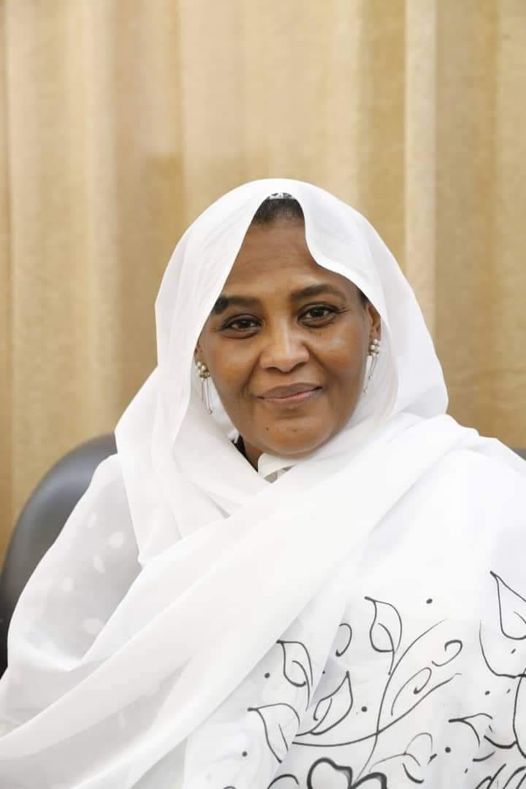Sudan will be sending within hours a letter to the United Nations Security Council (UNSC) calling for the 15-member body to oblige Ethiopia not to proceed with filling its Blue Nile dam without reaching a legal deal with downstream countries, Sudanese Foreign Minister Mariam Al-Sadiq said.
“Our letter is based on Article 35 of Chapter 6 of the United Nations charter and states that [Ethiopia’s filing plan] is so irritating for a United Nation member and risks peace and security in the region and the world,” Al-Sadiq told Al-Arabiya Al-Hadath News channel late on Saturday.
The Sudanese letter, the minister added, clarified the “major” harm that is expected to be inflicted upon Khartoum economically, socially, and politically, including ties between the two neighboring countries, by Addis Ababa’s anticipated step.
Tripartite negotiations between Ethiopia and downstream countries Egypt and Sudan on the Grand Ethiopian Renaissance Dam (GERD) stalled in April after Addis Ababa rejected the two countries’ request to include the US, the EU, and the UN in mediation talks, alongside the African Union (AU), the current mediator.
Tensions further mounted as Addis Ababa remains intent to execute the second filing of GERD next month despite lack of binding instrument with Cairo and Khartoum, a step that it had taken unilaterally last summer and constituted a turning point in Sudan’s position toward the Nile row, according to Al- Sadiq.
Sudan fears the GERD will put the operation of its Roseires dam and the lives of 20 million Sudanese citizens at “a very high risk” if an agreement regulating the operation and filling of GERD is not reached before the second filling.
Minister Al-Sadiq said the letter explains how Ethiopia failed to fulfill its legal and humanitarian duties as well as good neighborliness principles with Egypt and Sudan during the past years.
“Sudan is demanding [in the letter] the Security Council to oblige Ethiopia to adhere to the international law principles and not to go ahead with the second filing of the dam without a legally binding agreement,” the minister said.
The Sudanese letter is the latest diplomatic step taken by Khartoum in coordination with Cairo as both downstream countries have resorted to international diplomacy in the past weeks, briefing regional and international counterparts on their stances and developments in the latest deadlock in negotiations.
“Sudan has … helped Ethiopia significantly in the dam [whether] at technical, logistic, diplomatic, or political level out of its understanding of the significance of the project to Addis Ababa as well as its benefits to Khartoum if it is operated via an agreed upon manner without causing any harm to any party, including Egypt,” the Sudanese minister said, replying to Ethiopian allegations that Sudan has shifted its position toward the controversial project abruptly.
“Unfortunately, Ethiopia utilized the dam as tool to dominate Sudan and negatively impact its interest,” she said, referring to Ethiopia’s first unilateral filling.
The Sudanese minister said the dam should be filled within 7 years, with the three countries agree each year on quantity of the water to be held.
“Filling and operating the Renaissance Dam should be based on the principles of good neighborliness, international law, and the Declaration of Principles (DoPs) signed between the three nations in 2015,” she stressed.
The DoPs obliges Ethiopia to cooperate with Egypt and Sudan in filling and operating the dam. It also mandates the use of mediated negotiation in the event of a dispute arising from differences in its interpretation or application.
Both downstream countries have been negotiating for almost a decade now with Ethiopia to reach a legally binding and comprehensive deal on the GERD’s construction, which Addis Ababa started to build on the Blue Nile in 2011.
On 11 June, Egypt sent a letter to UNSC expressing its objection to Addis Ababa’ plan to move ahead unilaterally with the second filling in the absence of a legally binding agreement.
Egypt, which depends on the Nile for over 95 percent of its freshwater, fears that the massive $4.8 billion Ethiopian hydropower project will significantly diminish its crucial water supply, which is already below the scarcity level.In June 2020, the UNSC held an open session over the GERD dispute at Egypt’s request due to what it described as Ethiopia’s “intransigence” in negotiations.
During the session, the council urged the three countries to reach a consensus and warned against unilateral actions. The three countries agreed to continue negotiations under the aegis of the AU.
A month later, Ethiopia held 4.9 billion cubic metres of water in the reservoir without coordinating with Egypt and Sudan.
Ethiopia plans to hold 13.5 billion cubic metres of water during the second filling of the GERD’s reservoir in July.
Al-Sadiq said Sudan discussed with the Egyptian side the importance of reaching a “preconditioned provisional agreement” on the rules for the second filing as the absence of agreement will have a direct impact on Khartoum.
The initial agreement, she noted, should be followed by a final deal within a maximum period of 6 months and be based on the previous rounds of negotiations. Also, the US, the European Union and the United Nations should be engaged as mediators, along with the African Union.








